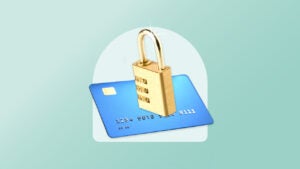What is a credit privacy number?

Key takeaways
- A credit privacy number, or CPN, is a nine-digit number similar to a Social Security number.
- Companies may try to sell you a CPN with promises of guaranteed loan approval, but this is a scam.
- Using a CPN on credit applications is fraud and may involve identity theft.
- The use of a CPN is illegal and CPNs are not recognized as valid by any government or financial institution.
If you want to improve your credit fast, you may have run across companies selling credit privacy numbers (CPNs). These CPNs look just like Social Security numbers and are supposed to allow you to apply for credit without exposing your real SSN and credit information. In reality, using a CPN on credit applications is fraud.
CPNs are not recognized as valid by any government or financial institution. In fact, according to the Credit Repair Organizations Act, the use of a CPN is outright illegal. Companies that sell CPNs often obtain them illegally by stealing identities.
By using a CPN, you are committing fraud and could be denied credit and barred from reapplying. You could even be convicted of identity theft and forced to pay fines or spend time behind bars.
What is a credit privacy number (CPN)?
A CPN is a nine-digit number that looks like a Social Security number (SSN) but is not issued by the Social Security Administration. This credit privacy number, also called a credit profile number, can be completely made up. But often, it is actually a stolen SSN.
Unscrupulous credit repair companies may sell CPNs that are real SSNs that belong to children, the elderly or those who are incarcerated. These companies say that you can use a CPN on credit applications to improve your chances of approval and protect your real SSN. The truth is, CPNs are a complete scam.
How do CPNs work?
Sold as a way to improve your credit or protect your credit information, companies that market CPNs promise you can use them just as you would a Social Security number. A CPN is even formatted just like an SSN (xxx-xx-xxxx).
Companies that sell CPNs often make fictitious claims, saying that a CPN can:
- Give you a clean credit slate.
- Improve your chances of getting loan approvals.
- Boost your credit score to 700 or 800.
- Get you into an apartment.
- Help you get high-limit credit cards.
- Protect you from identity theft.
To use a CPN, you may be encouraged to falsify info like your name or address when you apply for credit cards, auto loans, and even mortgages. By doing this, you are essentially lying to the lender to prevent them from checking your real credit.
How can you avoid a CPN scam?
These “quick-fix” credit companies are experts at marketing themselves as a legal substitute for mending credit fast. But don’t be fooled by their hype. There are some red flags to watch for that reveal the scam.
The first one is cost. SSNs are issued for free, but scammers often charge hundreds or thousands for a CPN. Unlike legitimate credit repair companies, they may ask for money upfront before performing any work, which is illegal.
When a company encourages you to provide false information, such as a different mailing address, email address or phone number, this is another red flag. The company may tell you this is to protect your identity, but it’s a way of falsifying your information.
A third warning is when companies promise to quickly remove blemishes from your credit, even accurate accounts. In reality, you cannot remove accurate negative information from your credit profile; you can only wait for it to fall off over time.
If you suspect a company is running a CPN scam, report it to the FTC online. Contact the police if you’ve been targeted by a CPN scam, and freeze your credit with all three major credit bureaus.
Can you improve your credit quickly without using a CPN?
Companies offering CPNs often target people with poor credit ratings looking for a quick fix for credit repair. Unfortunately, there is no quick way to improve your credit score.
However, there are legal, proven methods for improving your credit score over time.
- Paying bills on time: Making on-time payments is the biggest factor for improving your credit score. Paying on time shows lenders you’re a reliable borrower, and it helps increase your score over time.
- Keeping credit utilization as low as possible: Credit utilization is simply the percentage of your available credit limits you are currently using. The lower this number, the better it is for your credit score.
- Limiting new applications: If you have several credit inquiries in a short period on your credit profile, you may see your score decrease by a few points. This could also raise a red flag with lenders the next time you apply for credit.
- Checking your credit report for errors: Mistakes happen. You can get a free credit report at least once per year from each of the three major credit bureaus. If you find an error, each bureau has instructions online for filing a dispute to correct the error. You can also use a credit repair company to help you with disputes.
- Keeping old credit accounts open: Leaving a credit card account open increases the amount of available credit, which helps keep your credit utilization number in check. Plus, the account age is also reported on your credit profile, which can improve your length of credit history and credit score.
- Waiting for negative marks to fall off: Over time, the blemishes on your credit report will disappear. Most information falls off after seven years, but some entries, like a bankruptcy, can stay on your report for up to 10 years.
Bottom line
CPNs are a scam. Shady credit repair companies who sell CPNs will promise that they work just like an SSN and that using one will solve all of your credit problems.
The truth is that filling out a credit application, job application, or apartment application using a CPN is considered fraud. And worse yet, using a CPN in no way helps you to improve your existing credit.
The good news is that you can improve your credit without using a CPN, but it won’t happen overnight. Stay patient, pay your bills on time and continuously monitor your credit reports to ensure your credit profile is up to date and accurate.
Frequently asked questions
Why we ask for feedback Your feedback helps us improve our content and services. It takes less than a minute to complete.
Your responses are anonymous and will only be used for improving our website.
You may also like

The best debt consolidation loans for bad credit in 2025

Can you get a secured credit card with no bank account?





